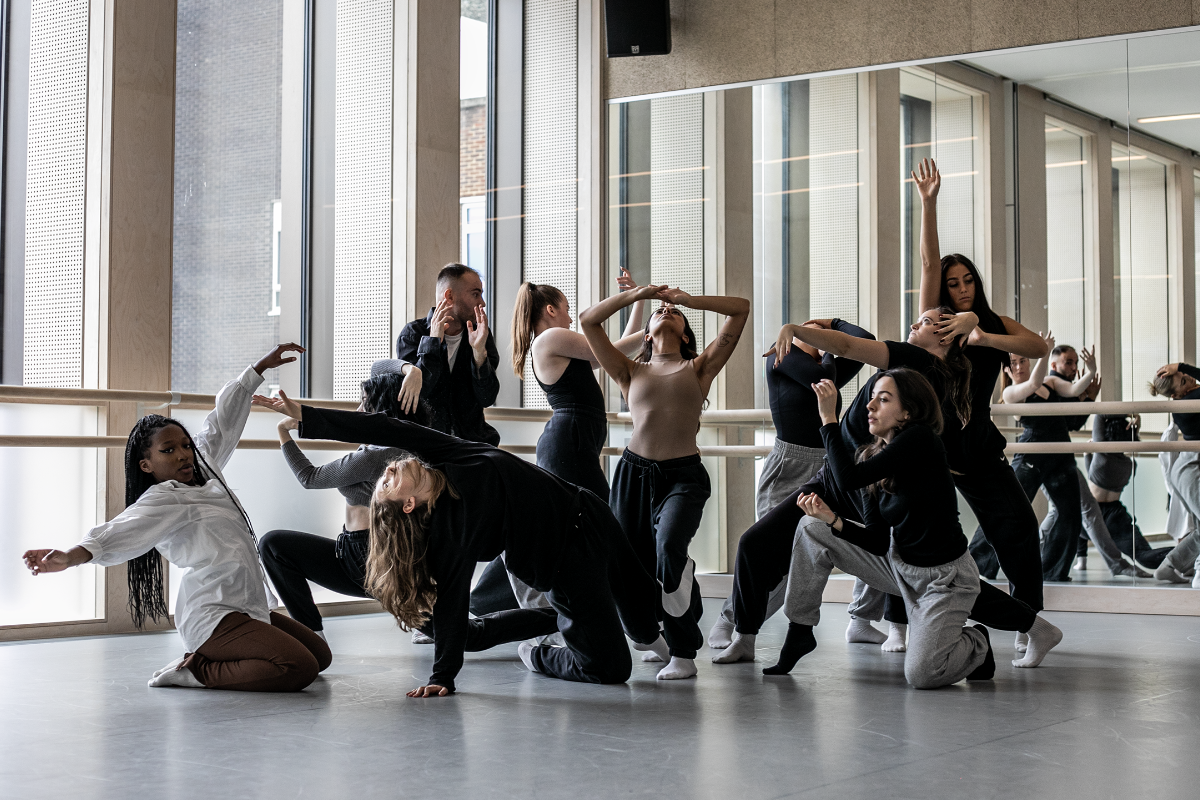
Photo: One Dance UK
Educators warn of decline in dance education
A survey of educators working in higher education institutions finds the number of higher education dance courses and the number of specialist dance staff has fallen.
The number of dance courses, dance teachers and dance students at higher education level is falling, the findings of a new survey suggest.
Conducted by One Dance UK, the subject association for dance in schools, a survey of experienced dance educators working in higher education settings found 64% had seen a dance course close in the last five years at their work institution.
The survey also found 65% witnessed a drop in the number of student applications to dance courses in the last five years, while 55% said they had seen a reduction in dance specialist staff in their work settings over the same time period.
READ MORE:
More than a third (38%) of respondents stated they do not feel secure in their roles, with 51% admitting to actively looking for work outside of dance higher education.
“Courses are fighting to survive one year at a time,” one respondent said.
“Staff are weary and made to feel like they are failing in their roles when the reality is that it is part of a wider demise of dance at higher education level.”
More than half (53%) of respondents said the negative perception of the value of the arts and creative career paths presented in the media and by government, and embedded in educational policy, has directly contributed to the ongoing decline in dance higher education provision.
One Dance UK Chief Executive Andrew Hurst said the research “adds to an already worrying picture of the state of dance education in the UK”.
“We are faced with a crisis that if not tackled, could lead to dance being pushed out of education entirely,” Hurst added.
“As a country that prides itself on producing and showcasing our world-leading performing arts, it would seem logical for access to dance and arts education more broadly to be a strategic national priority.”
More than three-quarters (76%) said they have witnessed a reduction in the skill level, experience and resilience of young people starting dance higher education programmes in the last five years.
Respondents attributed the decline to a drop in students studying GCSE and A-Level dance and the impact of the pandemic and its effect on young people’s wellbeing and resilience.
Call for action
One Dance UK’s report detailing its research findings says the reduction in provision of dance at higher education level is “incredibly short sighted”.
“We are at a crucial moment in time when we need to be developing the future generation of dance talent which will feed into the continued growth of the creative industries,” the report adds.
To secure the future of dance training, One Dance UK is calling on the UK government and devolved administrations to publicly recognise its value and importance.
A series of government-level recommendations also includes ensuring children and young people can access quality dance training through a broad and balanced curriculum and recognising and addressing regional and geographical inequalities in dance higher education.
Meanwhile, higher education institutions are being called upon to commit to high quality dance training and education and to develop effective recruitment strategies for dance programmes.
Schools and colleges are being urged to provide informed and up-to-date dance careers advice and to strengthen relationships with dance higher education providers, while young people and parents are being asked to seek out opportunities and proactively champion the value of dance education in their circles.
“The UK needs a strong and secure dance talent pipeline that is accessible to all, along with a cultural shift in thinking about the positive impact of dance on society as a whole,” Hurst commented.
“The time to act is now. It is more important than ever for the dance ecology to stand together in championing its importance. We have a generation of young people with the potential to be the dance workforce of the future who simply can’t afford for us to wait,” the report concludes.
Join the Discussion
You must be logged in to post a comment.